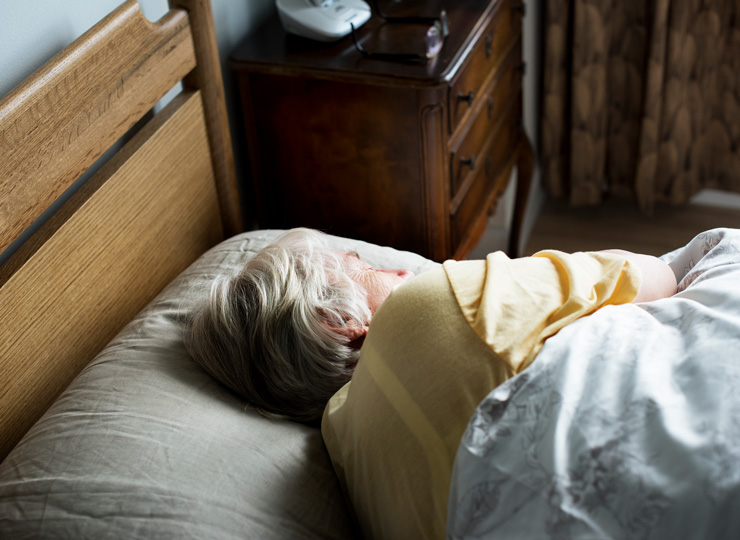
April 30, 2021
Men and women who didn’t get enough sleep in their 50s and 60s were at increased risk of developing dementia when they were older, according to a new report. The findings add to growing evidence linking sleep problems with an increased risk of Alzheimer’s disease and other forms of dementia.
For this very convincing and long-lasting study, researchers followed 7.959 British adults over 25 years; some they followed as long at 35 years. All were part of an ongoing study that tracked their health beginning in 1985.
Participants self-reported how many hours of sleep they usually got each night. Some wore sleep tracking watches that provided additional data about their nightly sleep habits. Furthermore, sleep patterns were recorded six times in a clinical set-up between the start of the study, through 2016. By the study’s end, 521 had been given a diagnosis of Alzheimer’s disease or another form of dementia, at an average age of 77.
The researchers found that those who regularly slept six hours or fewer on an average weeknight, beginning at age 50, were about 30 percent more likely to develop dementia by their late 70s than those who got at least seven hours of sleep a night. The findings were reported in the prestigious and well regarded journal Nature Communications.
The researchers considered a number of factors that can increase dementia risk, including whether the volunteers had high blood pressure, diabetes or obesity; whether they smoked or had depression; how much alcohol they drank or fruits and vegetables they ate; and their exercise habits. Sleeping fewer hours in middle age was independently tied to a greater risk of developing dementia.
Changes in sleep patterns are common in people who have Alzheimer’s disease and other forms of dementia. But it’s hard to know whether it is the brain changes of Alzheimer’s disease that are causing disrupted sleep, or whether disrupted sleep plays a role in brining on dementia. Most studies of sleep and dementia last 10 years or less, and the brain changes of Alzheimer’s disease typically begin 15 to 20 years before the onset of symptoms like memory loss become apparent.
This study spanned more than three decades and tracked participants sleep beginning at age 50. It is less likely at that age that any incipient brain changes of Alzheimer’s, including the accumulation of amyloid plaques and tau tangles in the brain, would have a major impact on sleep, the researchers say.
The findings provide stronger evidence that long-term sleep perturbations do have a role in brain health, including the risk for Alzheimer’s disease. Importantly, it is still not clear today what the function of sleep is, but it is known that it is vital and it is believed to serve as a reset period to cool off nerve cells and help to consolidate, perhaps also organize, new memories. Some studies also suggest that sleep may play a kind of “housecleaning” role, helping to clear the brain and spinal fluid of toxic proteins that can lead to the buildup of plaques and tangles. Not getting enough sleep may dampen this cleansing effect.
Until more effective treatments or a cure for Alzheimer’s disease are found, getting sound sleep may be one way to help slow the onset of dementia as the years advance.
By ALZinfo.org, The Alzheimer’s Information Site. Reviewed by Marc Flajolet, Ph.D., Fisher Center for Alzheimer’s Research Foundation at The Rockefeller University.
Source: Severine Sabia, Aurore Fayosse, Julien Dumurgier, et al: “Association of sleep duration in middle and old age with incidence of dementia.” Nature Communications, Volume 12, April 20, 2021











